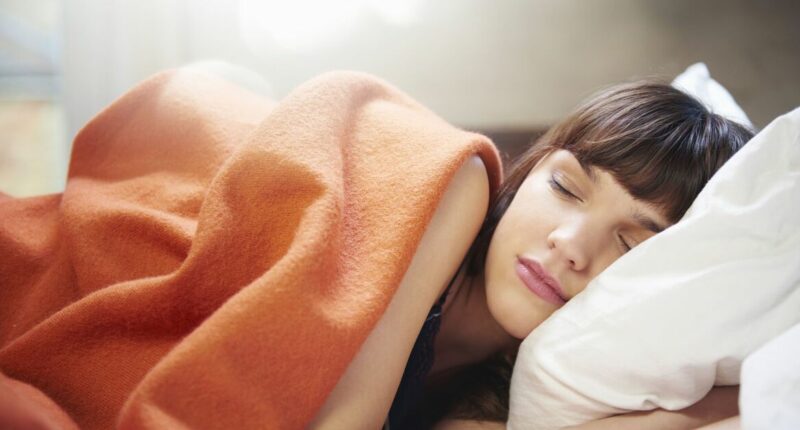Share this @internewscast.com
Around one in three Brits are thought to suffer from insomnia, characterised by symptoms including difficulty falling asleep, waking frequently during the night, or waking early in the day and being unable to get back to sleep. Drug treatments are available but can have side effects. And while cognitive behavioural therapy is effective, it can be difficult to access.
In their search for other approaches, researchers in China studied the effects of cheap exercise-based methods. They analysed data from 22 clinical trials, including 1,348 patients and 13 different measures to boost sleep. The seven forms of exercise included were: yoga, Tai Chi; walking or jogging; aerobic plus strength exercise; strength training alone; aerobic exercise combined with therapy; and mixed aerobic exercises.
What did the study find?
The study, led by Dr Zhijun Bu at Beijing University of Chinese Medicine, found that yoga resulted in an increase in sleep time of almost two hours and could also cut the amount of time spent awake after falling asleep by nearly an hour.
Walking or jogging could reduce insomnia severity, while Tai Chi could boost sleep quality. The study also suggested that walking or jogging could reduce levels of the stress hormone cortisol, while boosting melatonin, the hormone that regulates sleep cycles.
Writing in the journal BMJ Evidence Based Medicine, the researchers concluded: “Exercise is an effective treatment for improving sleep in patients with insomnia.
“Among the various exercise interventions, yoga, Tai Chi and walking or jogging are more effective than other exercises.”
Why do these exercises help?
According to researchers, yoga’s focus on body awareness and controlled breathing could be the key to benefits. This could help with easing symptoms of anxiety and depression that can often impair sleep.
Tai Chi, an ancient Chinese martial art that involves slow, flowing movements, “emphasises breath control and physical relaxation”, they added, and could boost emotional regulation.
Walking or jogging may improve sleep through “physiological and psychological pathways, including increased energy expenditure, reduced cortisol levels, improved emotional regulation, elevated melatonin secretion, and enhanced proportions of deep sleep”, the study said.
The researchers noted that, as different forms of exercise may have different effects on insomnia symptoms, tailored treatment plans may be needed.
How much exercise do you need to do?
In the studies included in the review, people on average continued with the exercise interventions for between four and 26 weeks before the benefits were assessed. However, the study did not specify how many sessions they completed per week.
Around two to three yoga sessions are typically recommended per week for beginners and consistency is key to build strength and improve flexibility.
Should doctors be prescribing exercise for sleep problems?
The researchers said their findings “underscore the therapeutic potential of exercise interventions in the treatment of insomnia”. And they suggested such interventions could be integrated into primary care and community health programmes.
Doctors can already recommend exercise as part of a treatment plan and many areas have referral schemes where GPs can refer patients to local leisure centres or gyms.
The researchers also called for large-scale, high-quality trials to confirm and extend their findings.













